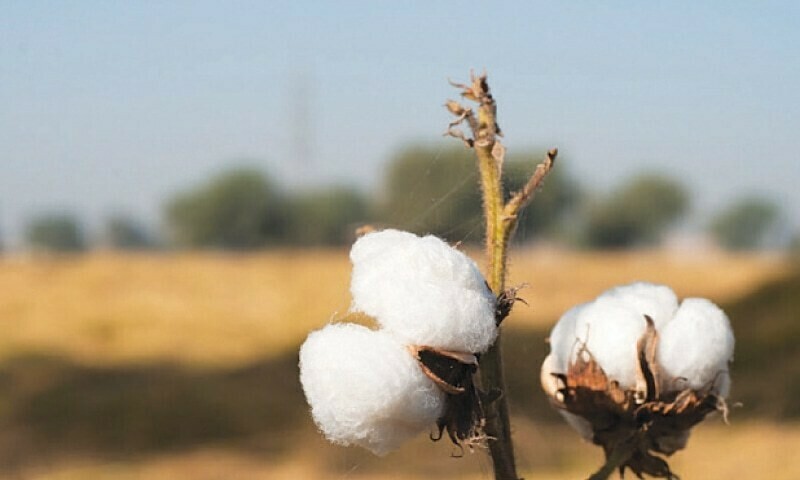
[ad_1]

ISLAMABAD: Commerce Minister Jam Kamal has voiced concerns that Pakistan is now facing the unpleasant reality of importing raw cotton owing to a lack of attention and resources in the industry.
The minister discussed the challenges facing the cotton industry with a delegation of the Pakistan Ginners Association, led by its chairman, Dr Jassu Mal, on Wednesday.
According to an official announcement, the minister said that once a global leader in cotton production and exports, Pakistan now faces the harsh reality of importing raw cotton due to a lack of attention and resources.
He deplored an alarming decline in ginning factories from 1,200 to just 400, which led to underutilisation of electricity resources and disruptions in the cotton supply chain.
Admits ‘lack of attention’ forced country to spend billions of dollars on imports
He emphasised that cotton is not merely a commodity but a livelihood, with millions of people in Pakistan depending on its growth, harvesting, and processing. He acknowledged the heavy taxation across the cotton production cycle—from pesticides to ginning and oil extraction—that has made it difficult for cotton to compete with other crops.
He stressed that the government is urgently treating this issue, particularly given the $3-4 billion spent annually on cotton imports, which could be saved by reviving domestic production. The minister expressed the government’s commitment to collaborating with industry stakeholders, including APTMA and exporters, to formulate a comprehensive action plan.
He also encouraged the association to submit proposals for funding through the Export Development Fund (EDF) to help reinvigorate the sector and boost exports.
Dr Jassu Mal pointed out the sector’s once prestigious title of “white gold.” He warned that without intervention, the high taxation and electricity costs would continue to drive farmers away from cotton despite its billion-dollar export potential.
Pharma exports
Meanwhile, a Pakistan Pharmaceutical Manufacturers Association (PPMA) delegation, led by its chairman, met with Mr Kamal to discuss the sector’s challenges and seek government support to enhance pharmaceutical exports.
The chairman emphasised that 95pc of Pakistan’s pharmaceutical production was local, with only 5pc imported, indicating a significant opportunity for export growth.
The chairman highlighted that Pakistan’s pharmaceutical exports currently stand at $341 million, but with government backing, this figure could reach multiple billions of dollars.
Published in Dawn, October 10th, 2024
[ad_2]
Source link






